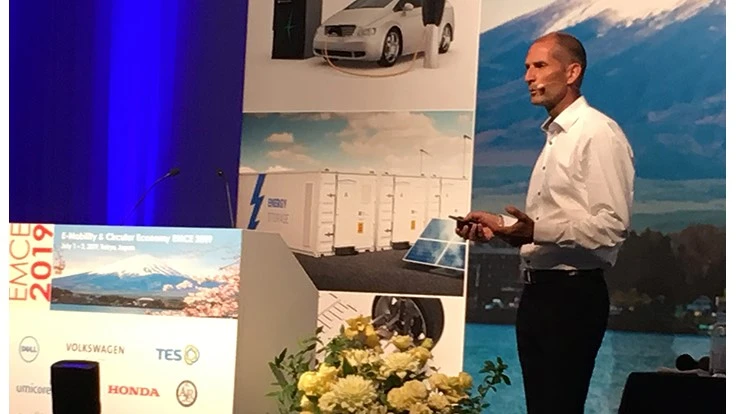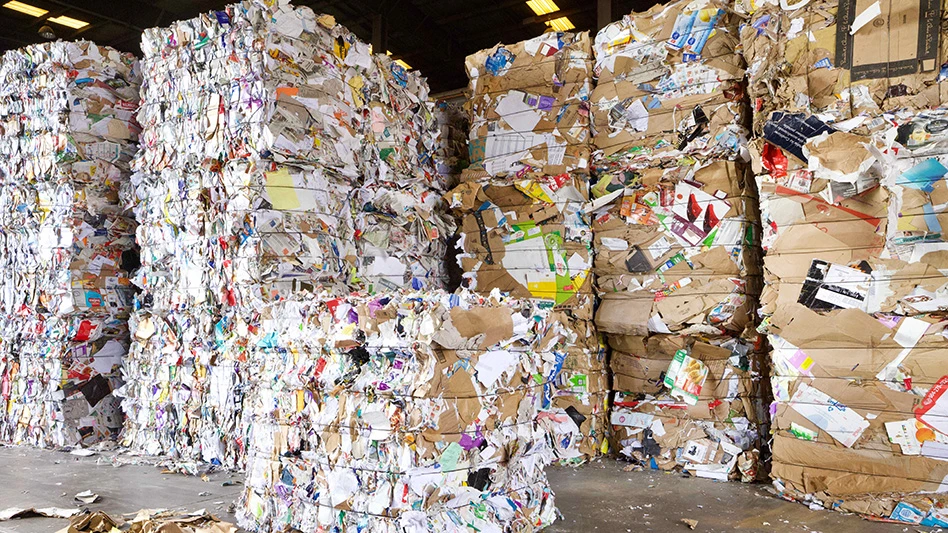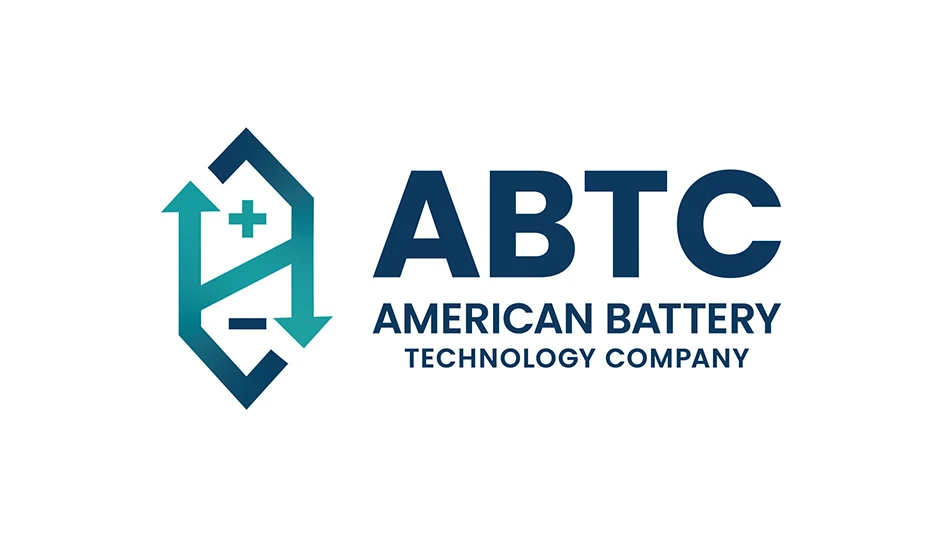
Recyclers of end-of-life vehicles (ELVs) may need to revise and expand their practices as more electric vehicles (EVs) enter their facilities, according to two presenters at the 2019 E-Mobility & Circular Economy (EMCE 2019) conference, which was organized by Switzerland-based ICM AG and held in Tokyo July 1-3.
Adina Renee Adler, a vice president with the Washington-based Institute of Scrap Recycling Industries (ISRI) said newer vehicles of all types increasingly contain onboard computers with routing and other information that the vehicles’ owners consider proprietary. This brings data management and data destruction aspects into automobile recycling that were not previously a concern.
Adler conveyed the story of a salesperson in the U.S. who found that his former company car was acquired by a competing firm. The second firm that possessed the car subsequently discovered and called upon the first car owner’s customers (via the routing software), and also allegedly sent the first owner harassing and taunting messages.
Such incidents are attracting the attention of law enforcement agencies and policy makers in the United States, said Adler, causing the potential for new obligations for ELV recyclers. On the other hand, she said, auto recyclers could look at it as an opportunity to offer $100 in data destruction services, providing an important opportunity beyond the “25 cents in materials” that might be found in an automotive circuit board.
EVs overall tend to contain less iron and steel, said Adler, and more alternative materials such as carbon fiber and specialty alloys. This too, she said, may require changing methodologies to turn challenges into opportunities. In the U.S. currently, said Adler, there only is “a very nascent dialog” about such changes.
Sweden-based Stena Recycling has been handling ELVs for decades, but the company’s Rasmus Bergström says the growth of EVs in the overall vehicle market share will stir changes. “Large opportunities are small business in the beginning,” he said of Stena’s initial approach to these changes.
With China having far more EVs on the road than Europe, Bergström said recyclers in Europe should study EV battery recycling in that nation. He said Chinese firms like Gem Co. and BRUNP were recycling the materials in such batteries on a far larger scale than what was taking place elsewhere. “We can learn a lot from these companies,” stated Bergström.
He listed the challenges facing EV recyclers around the world as the volatile nature of some batteries in the storage and transportation phase; regulations clouding whether EV batteries can be repurposed; and a murky ownership, warranty and producer responsibility picture further clouding the battery re-use and recycling market.
Bergström compared the future of ELV recycling to a traffic roundabout, where incoming vehicles will include both EVs and internal combustion models, and sales activity may include traditional metals recycling plus battery refurbishment and reconditioning.
EMCE 2019, which featured plant tours, workshops, conference sessions and an exhibit hall, was July 1-3 at the Westin Tokyo.
Get curated news on YOUR industry.
Enter your email to receive our newsletters.
Latest from Recycling Today
- Reju, Circle-8 partner to develop UK textile circularity
- Aduro joins PLASTICS, PSRA
- Rumpke awarded recycling contract in Bowling Green, Ohio
- VPPA and RISI to host pulp and paper summit in Vietnam
- Agilyx buys stake in Green Dot
- Meadow tabs aluminum as key to boosting beauty sector recycling
- Recycling industry stakeholders testify at Congressional hearing
- Missouri city expands recycling capabilities with funding from The Recycling Partnership





